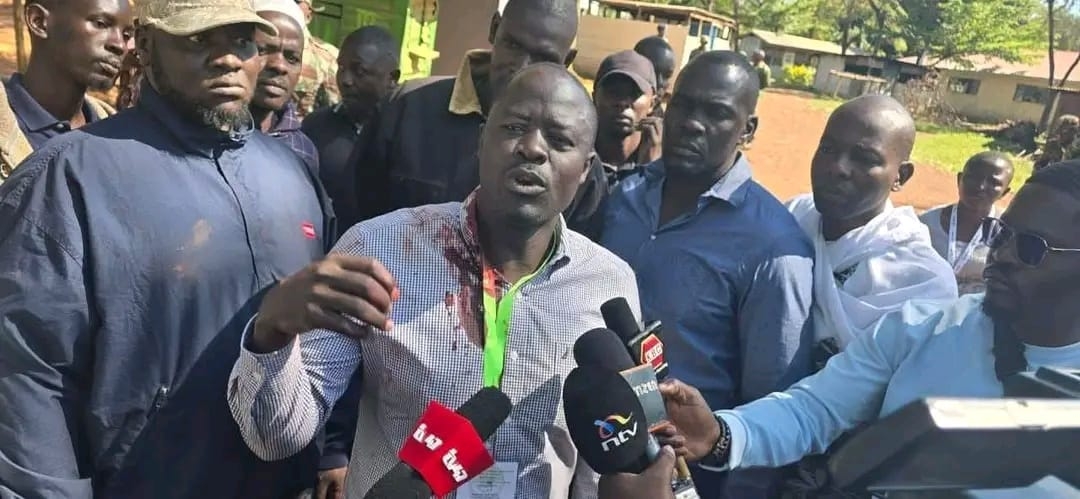There is no luxury of time, it is time to work.
Now that President William Ruto and his deputy, Rigathi Gachagua, have settled in office, it is time to discharge their mandate as obligated under the Constitution and other enabling laws.
Kenyans are now justified to hold them to account from day one in office leading to the lapse of the 100 days.
It is exciting to note that access to fertilizer that was promised to be available under one week has been realised. It should be on record that there is no constitutional or statutory significance to the first 100 days of a president’s term, yet this period is considered by change management experts as a benchmark to measure the early success of every office holder.
The 100 days mantra came from Franklin Roosevelt, who was elected amid a great depression and guided America out of the economic doldrums. What did Roosevelt do in his 100 days that continue to inform new officeholders?
In those 100 days, he declared a bank holiday that stopped the disastrous run on the banks, and passed groundbreaking legislation for farmers and homeowners and the unemployed. Ever since, presidents have been evaluated for their performance in the first 100 days.
The bottom-up approach may have been at the centre of Ruto’s campaigns but now that he is in office, he is expected to offer direction from the seat of power. While consultation remains central to every successful administration, Kenyans undoubtedly expect the President and his deputy to lead from the front.
It should be remembered that when the Narc government took over government in 2002 under Mwai Kibaki (now deceased), Kenyans were rated as the most expectant and optimistic people in the world.
Going by the friendly promises given by Ruto, he must lead from the front as the president and as a person who is used to leading from the front. Whenever change comes, it is always good to be driven by the top policy drivers.
All Kenyans and the international community hope that those who will get a chance to serve as Cabinet secretaries and permanent secretaries will discharge their mandate in the interest of the public.
Perhaps a key signal could be inferred from the new presidential flag that incorporated the UDA’s party symbol of a wheelbarrow. The President has been on record that the choice of a wheelbarrow as a political symbol informed by the fact that Kenyans always wake up early enough to fend for themselves.
The focus now shifts to the journey ahead and the 100 days will give a glimpse of what the Ruto administration will look like.
The President made several commitments during his inauguration address. The promise to reform the tax system, revitalise agriculture and rollout access to finance through the much-publicised Hustler Fund among other commitments served to fuel public expectations.
The lowering of prices of fertilizer from Sh6,500 to an affordable price of Sh3,500 is laudable, so is the slashing of the Fuliza charges by 50 per cent.
Kenyans look forward to having some of these initial interventions pay dividends.
The appreciation of the key role played by the counties as the first line of defence in hunger-stricken areas is a progressive initiative to find a stop-gap measure. However, the long-term strategy should be to explore investments in agriculture and spur economic growth across the nation.
The promise to cut down on endless borrowing from the big guns and urging Kenyans in general to embrace a saving culture is laudable. Job creation is another key area of focus, if we have to keep the dreams of the majority youth alive. This is a delicate balance for the new administration.
The reality is initiatives for righting the wrongs must be rolled out within the first 100 days for every new leader, if they hope to deliver on the campaign promises. The hustler Mantra undoubtedly catapulted Ruto into the office and by dint of that, fueled optimism among a majority of Kenyans regardless of whether they voted in his favour or otherwise.
Kenyans are hardworking.
The presidency is expected to be extremely busy as the new leadership wields state power to discharge the constitutional duty. There is no time to rest.
With the Cabinet named, we expect the National Assembly to vet the nominees as soon as possible.
Kenyans understand the value of getting things lined up early and this should be demonstrated in the coming days.
But the biggest challenge for Ruto’s presidency is how his administration will deal with the huge public debt, the public wage bill crisis, unemployment and the high cost of living. How the Kenya Revenue authority will run a friendly tax collection system and bring on board more people within the tax bracket is something that will be watched keenly. There have been myriad complaints about the unfriendly tax regime under the previous government where Ruto served as the Deputy President.
The biggest challenge for Ruto lies in how the new administration will strike a delicate balance of translating campaign promises into reality.
Finally, the most delicate part of wielding public power is taking care of the symbolic sword, taking care of the sharp edge should be in the public interest. Mr President, use the sword to defend Kenya and her citizens. Having publicly complained about how the police force was misused to fight political wars, Kenyans will also be watching how the new administration will drive the country in the coming days.
Nakhurenya Eric lawyer and public policy consultant













